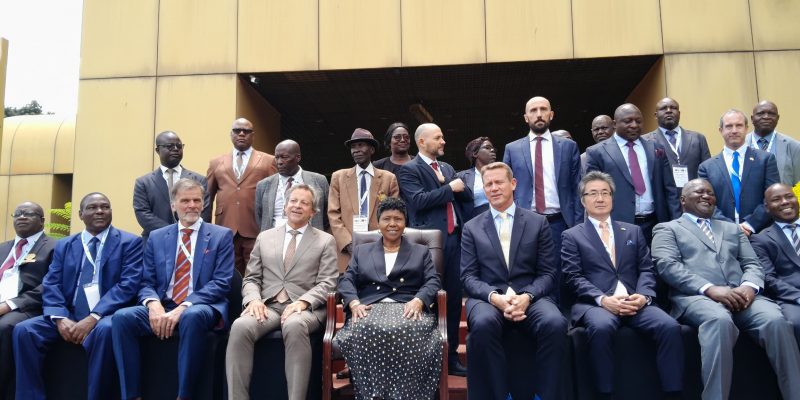Zimbabwe’s government has pledged to continue funding the National Mine Clearance Unit with a minimum of $2 million annually to complete mine clearance operations, Defence Minister and War Veterans Affairs Oppah Muchinguri has said. This effort aims the government’s commitment to meeting its Article 5 deadline under the Anti-Personnel Mine Ban Convention.
Initially, Zimbabwe aimed to complete mine clearance by December 2025. However, due to challenges posed by the COVID-19 pandemic and fluctuations in international funding, the government intends to seek a three-year extension, pushing the deadline to 2028.
Minister Muchinguri assured stakeholders at the National Stakeholders Dialogue on Humanitarian Demining and Mine Victims at the Harare International Conference Centre that the government is working on submitting a formal extension request to the Secretariat of the Treaty. “As a result, we are working on submitting another three-year extension request,” she said.
Zimbabwe’s demining efforts have made significant progress, with organizations like APOPO, HALO Trust, and the Mines Advisory Group contributing to the clearance of mined areas. Despite these efforts, securing consistent funding remains a challenge.
“Completion of mine clearance is hinged on sustained funding from government and current and new donors,” Minister Muchinguri added.
Since gaining independence, Zimbabwe has made significant strides towards becoming a mine-free zone. To date, all except 12 square kilometers of mine area have been cleared and handed back to communities for economic exploitation covering Chipinge districts areas like Mutasa,Mutare Urban and Mutare rural which are now mine free.However, to complete mine clearance by 2028, Zimbabwe faces a funding gap of $23.79 million as of September 2024.
The government’s commitment to demining is crucial for the safety of local communities and the preservation of wildlife. With the extended deadline, Zimbabwe aims to become mine-free by 2028, aligning with its international obligations and ensuring a safer future for its citizens.
-By Tichaona Wangotse










Comments